A story of transforming a small town by transforming the landscape that people live in.
Jump to: Films | Podcasts | Articles | Books | Lessons
Films
How Can We Eat Our Landscapes?
Categories: Culture, Food, TED Talks, Top Picks
Vandana Shiva on Sustainability
Categories: Climate Change, Culture, Decolonization, Humans & Nature, TED Talks, Top Picks
“Whatever I do, I do from a deep love… a very deep love for life and all its gifts and bounties. And it’s that love that replenishes me and recharges me to go on. I’m not doing a job for anybody. Nobody is paying me a salary—this much nine-to-five and a little bonus if you do more. No, this is about living. It is about the joy of living. And if that joy of living requires that those who are robbing the planet of its life, those who are robbing people of their lives have to be resisted and questioned, I will do that too. That too is part of my resistance.”
Life is Easy—Why Do We Make It So Hard?
Categories: Culture, Humans & Nature, TED Talks, Top Picks
In great eloquence, our friend P’Jo (Jon Jondai) lays out his philosophy for life and his simple, undeniable refutation of the superiority of modern “culture.” The most important parts of life are easy when you have a group of friends and family doing them with you, and the Earth provides for us. Our modern lives seem crazy when compared to nature: a bird builds her nest in two days yet we work in uncomfortable, stressful jobs for 30 years to pay for ours. It might take a little longer than two days to build a house, but P’Jo offers solutions at Pun Pun Farm that are viable alternatives to the path we are on.
The Man Who Planted Trees (1987)
Categories: Culture, Ecology, Humans & Nature, Top Picks
The Man who Planted Trees is an award-winning animated short film based on a short story by the same title. In brief, the film tells the story of a shepherd—Elzéard Bouffier’s—attempt to re-forest an entire French valley alone, becoming acquainted with values of love, compassion and peace that the practice brings him through the years. Accompanied by whimsical illustrations and a touching storyline, this film highlights the tranquility and compassion that often get overshadowed in stories of modern-day environmentalism.
SEED: The Untold Story
Categories: Food, Humans & Nature, Top Picks
“We lost 94 percent of our vegetable seed varieties in the 20th century,” the film informs the viewer. This visually stunning film chronicles the movement to protect seeds—a practice called “seed saving”—before many disappear forever. Warning of the grave danger seeds are in, this film urges the viewer to recognize our irreparable destruction of ancient seeds, the vulnerability of seeds, and forces them to acknowledge what’s at stake for the future of mankind.
A Fierce Green Fire
Categories: Climate Change, Culture, Humans & Nature, Top Picks
This documentary guides viewers through the history of environmentalism through an empowering lens of collaboration, cooperation, and success in unlikely fights. Taking a look at the environmental movement’s connection to matters of water pollution, toxic waste, climate change, whaling, and damming—just to name a few—A Fierce Green Fire reminds us of the passion that comprises the foundation of the environmental movement.
DamNation
Categories: Humans & Nature, Top Picks, Water
Controversy over dams is emotional and heated. Surging rivers are powerful symbols of the wild and central components in their ecosystems. To most environmentalists, dams are the quintessential representation of destroying something wild to promote something artificial, whether it’s irrigating the desert or shipping material goods up rivers. After a century of excessive dam building, the tide is turning and dam removal has begun. DamNation is a visual narrative of the previous, guiding the viewer through the history, social and environmental implications of damming and dam removal.
Articles
Corn Tastes Better On The Honor System
Categories: Culture, Food, Humans & Nature, Top Picks
Robin Wall Kimmerer lays out the history of corn as an illustration of our relationship with the Earth and the way we live.
“My handful of Red Lake flint corn seeds were a gift from heritage seed savers, my friends at the Onondaga Nation farm, a few hills away. This variety is so old that it accompanied our Potawatomi people on the great migration from the East Coast to the Great Lakes. If you could carry only a single pouch of seeds, this would be the one to choose, with nutrition for physical health and teachings for spiritual health. Holding the seeds in the palm of my hand, I feel the memory of trust in the seed to care for the people, if we care for the seed. These kernels are a tangible link to history and identity and cultural continuity in the face of all the forces that sought to erase them. I sing to them before putting them into the soil and offer a prayer. The women who gave me these seeds make it a practice that every single seed in their care is touched by human hands. In harvesting, shelling, sorting, each one feels the tender regard of its partner, the human.
My neighbor bought his seeds from the distributor. They are a new GMO variety that he can’t save and replant but must buy every year. Unlike my seeds of many colors, his are uniform gold. They will be sown with the scent of diesel and the song of grinding gears. I suspect that those seeds have never been touched by a human, but only handled by machines. Nonetheless, when the seeds are in the ground and the gentle spring rain starts to fall, I suspect he looks up at the sky and prays. We both stand back and watch the miracle unfold.”
Listen to Robin Wall Kimmerer reading this article:
Books
The Way Home
Categories: Culture, Economics, Top Picks
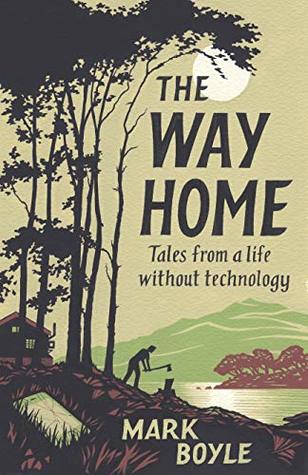
Mark Boyle’s previous experiment was to live without money for a year. He ended up living much longer than that, and it sent him down a path towards a new experiment: living without technology. The Way Home offers an intimate account of his life on a small farm in his native Ireland, where he chronicles his life without technology. Part Thoreau, part Gandhi, part Edward Abbey, this book is a wonderful journey that focuses not so much on the environmental destruction caused by modern culture, but on the effect that modern lifestyles have on us as people and on our relationship with the world. We know what is gained by technology, but what is lost?
If you like this book, you’ll also enjoy Mark Boyle’s 2011 TED talk about his relationship with money.
The Unlikely Peace at Cuchumaquic
Categories: Culture, Decolonization, Humans & Nature, Top Picks
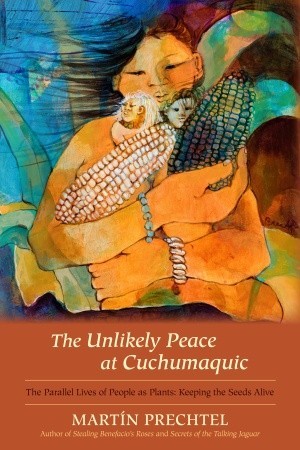
The Unlikely Peace at Cuchumaquic is like one of the seeds Martín Prechtel describes—preserving a way of thought so endangered in the modern world. From the perspective of those growing up in the Western worldview, we need a translator in order to go below the surface of indigenous thought. Prechtel is an excellent guide on that journey, and he asks that you follow him outside of what you might consider normal in order to see something more wondrous and complex. This book is part story, part elegy to a culture under siege, and part how-to guide to resist the homogenizing and dulling forces that consume indigenous and earth-based culture, all written in a long, flowing prose that sweeps you up and away into the story.
“Turn that worthless lawn into a beautiful garden of food whose seeds are stories sown, whose foods are living origins. Grow a garden on the flat roof of your apartment building, raise bees on the roof of your garage, grow onions in the iris bed, plant fruit and nut trees that bear, don’t plant ‘ornamentals’, and for God’s sake don’t complain about the ripe fruit staining your carpet and your driveway; rip out the carpet, trade food to someone who raises sheep for wool, learn to weave carpets that can be washed, tear out your driveway, plant the nine kinds of sacred berries of your ancestors, raise chickens and feed them from your garden, use your fruit in the grandest of ways, grow grapevines, make dolmas, wine, invite your fascist neighbors over to feast, get to know their ancestral grief that made them prefer a narrow mind, start gardening together, turn both your griefs into food; instead of converting them, convert their garage into a wine, root, honey, and cheese cellar–who knows, peace might break out, but if not you still have all that beautiful food to feed the rest and the sense of humor the Holy gave you to know you’re not worthless because you can feed both the people and the Holy with your two little able fists.”
Open Veins of Latin America
Categories: Culture, Decolonization, Top Picks
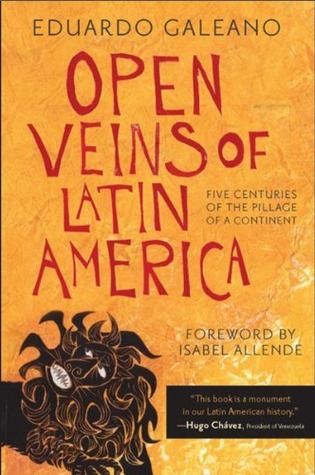
Open Veins of Latin America is a vivid exploration of colonial and neo-colonial history in all of Latin America. This book is a valid answer to the question, “how did the United States get so rich?” When we examine the origins of modern culture in the U.S., we rarely ask questions about where our consumer goods come from, who we stepped on to stand at the pinnacle of global power, or how Central Americans became refugees crossing our southern border. This book is about Latin American history, but it is also about the intentionally hidden histories of the United States.
“Our defeat was always implicit in the victory of others; our wealth has always generated our poverty by nourishing the prosperity of others – the empires and their native overseers. In the colonial and neocolonial alchemy, gold changes into scrap metal and food into poison.”
“Latin America is the region of open veins. Everything from the discovery until our times, has always been transmuted into European–or later–United States– capital, and as such has accumulated on distant centers of power. Everything: the soil, its fruits and its mineral-rich depths, the people and their capacity to work and to consume, natural resources and human resources.”
The Protestant Ethic and the Spirit of Capitalism
Categories: Culture, Top Picks
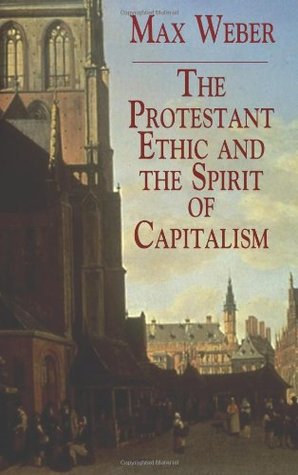
Max Weber was one of the original sociologists to see the disenchantment associated with the rise of capitalism. He pointed to the social and cultural roots of that phenomenon: a direct refute to Karl Marx’s ideas about class struggle and communism. When seeking the roots of the modern American culture and its associated damage to the natural world, Max Weber is an often overlooked stop on the path.
Encounters With The Archdruid
Categories: Humans & Nature, Top Picks
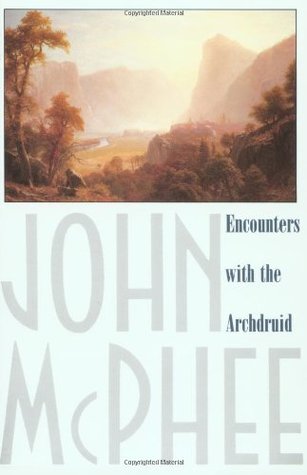
“Sooner or later in every talk, Brower describes the creation of the world. He invites his listeners to consider the six days of Genesis as a figure of speech for what has in fact been four billion years. On this scale, a day equals something like six hundred and sixty-six million years, and thus ‘all day Monday and until Tuesday noon, creation was busy getting the earth going.’ Life began Tuesday noon, and ‘the beautiful, organic wholeness of it’ developed over the next four days. ‘At 4 P.M. Saturday, the big reptiles came on. Five hours later, when the redwoods appeared, there were no more big reptiles. At three minutes before midnight, man appeared. At one-fourth of a second before midnight, Christ arrived. At one-fortieth of a second before midnight, the Industrial Revolution began. We are surrounded with people who think that what we have been doing for the last one-fortieth of a second can go on indefinitely. They are considered normal, but they are stark, raving mad.”
David Brower was a giant in environmental protection in the United States. As president of the Sierra Club, he grew the organization from a small mountaineering club to the largest environmental lobbying group in the world: over 3.5 million members. Many credit Brower for the preservation of the Grand Canyon and the North Cascades. In this book, John McPhee follows Brower for three encounters with his rivals: a mining geologist, a real estate developer, and a dam builder.
Braiding Sweetgrass
Categories: Decolonization, Ecology, Humans & Nature, Top Picks

“On Mondays, Wednesdays, and Fridays at 9:35 a.m., I am usually in a lecture hall at the university, expounding about botany and ecology—trying, in short, to explain to my students how Skywoman’s gardens, known by some as “global ecosystems,” function. One otherwise unremarkable morning I gave the students in my General Ecology class a survey. Among other things, they were asked to rate their understanding of the negative interactions between humans and the environment. Nearly every one of the two hundred students said confidently that humans and nature are a bad mix. These were third-year students who had selected a career in environmental protection, so the response was, in a way, not very surprising. They were well schooled in the mechanics of climate change, toxins in the land and water, and the crisis of habitat loss. Later in the survey, they were asked to rate their knowledge of positive interactions between people and land. The median response was “none.”
I was stunned. How is it possible that in twenty years of education they cannot think of any beneficial relationships between people and the environment? Perhaps the negative examples they see every day— brownfields, factory farms, suburban sprawl—truncated their ability to see some good between humans and the earth. As the land becomes impoverished, so too does the scope of their vision.”
Braiding Sweetgrass is a beautiful journey through our personal and cultural relationships with the natural world. Robin Wall Kimmerer writes from the dual perspectives of a Native American woman and an ecology professor, outlining the intersection between science and traditional ways of knowing the Earth. She writes to share a vision—how we can begin to form beneficial relationships with the natural world and move beyond a model of damage control.
The Man Who Planted Trees
Categories: Culture, Ecology, Humans & Nature, Top Picks
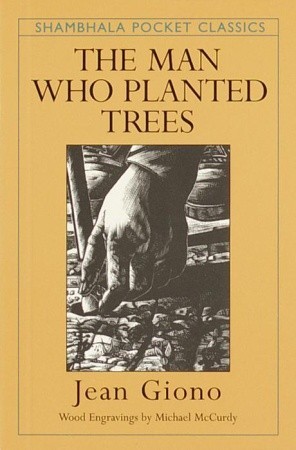
“The oaks of 1910 were then ten years old and taller than either of us. It was an impressive spectacle. I was literally speechless and, as he did not talk, we spent, the whole day walking in silence through his forest. In three sections, it measured eleven kilometers in length and three kilometers at its greatest width. When you remembered that all this had sprung from the hands and the soul of this one man, without technical resources, you understand that men could be as effectual as God in other realms than that of destruction.”
This gem is among our favorite stories: a simple allegory about the efforts of one man to change the world around him. It’s wonderfully written and just a fifteen minute read. This version, the story read aloud over an animated illustration, won an academy award for short films in 1987, and we highly recommend it. You can find Jeff’s transcription of this version here.
The Unsettling of America
Categories: Culture, Economics, Food, Humans & Nature, Top Picks
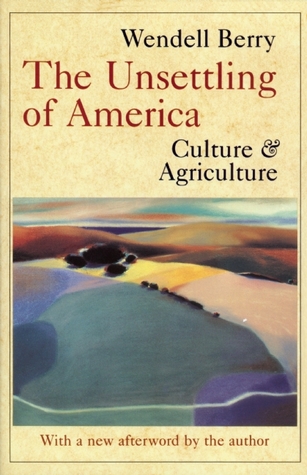
“We have given up the understanding — dropped it out of our language and so out of our thought — that we and our country create one another, depend on one another, are literally part of one another; that our land passes in and out of our bodies just as our bodies pass in and out of our land; that as we and our land are part of one another, so all who are living as neighbors here, human and plant and animal, are part of one another, and so cannot possibly flourish alone; that, therefore, our culture must be our response to our place, our culture and our place are images of each other and inseparable from each other, and so neither can be better than they other.”
Wendell Berry is a farmer and poet, outraged at what is happening with the spread of industrial agriculture. He details how our connection to the land is the definition of our culture, and how our industrial culture is killing both itself and the planet. If you read just one book about food, this should be it. Written over 50 years ago, Berry’s insight is still urgent and could have been written yesterday.
The Omnivore’s Dilemma
Categories: Food, Top Picks
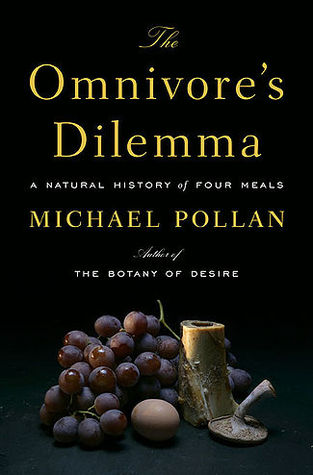
“Imagine if we had a food system that actually produced wholesome food. Imagine if it produced that food in a way that restored the land. Imagine if we could eat every meal knowing these few simple things: What it is we’re eating. Where it came from. How it found its way to our table. And what it really cost.”
This is our modern classic book on the food we eat. Pollan picks apart America’s food system, examining the true impact of industrial agriculture (focusing on corn), what large and small-scale organic farming looks like, and asking if any real alternatives exist. It’s fun, it’s accessible, and it’s deep.
This Changes Everything: Capitalism vs. The Climate
Categories: Climate Change, Economics, Top Picks
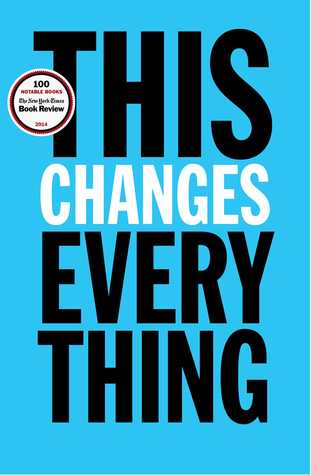
“What the climate needs to avoid collapse is a contraction in humanity’s use of resources; what our economic model demands to avoid collapse is unfettered expansion. Only one of these sets of rules can be changed, and it’s not the laws of nature.”
“Slavery wasn’t a crisis for British and American elites until abolitionism turned it into one. Racial discrimination wasn’t a crisis until the civil rights movement turned it into one. Sex discrimination wasn’t a crisis until feminism turned it into one. Apartheid wasn’t a crisis until the anti-apartheid movement turned it into one. In the very same way, if enough of us stop looking away and decide that climate change is a crisis worthy of Marshall Plan levels of response, then it will become one, and the political class will have to respond, both by making resources available and by bending the free market rules that have proven so pliable when elite interests are in peril.”
Why do we continue to “look away” from climate change, unable to acknowledge it as the crisis it truly is? Because the ideology and system of capitalism and its proponents—more specifically free-market fundamentalism aka neoliberalism—have systematically overpowered or silenced effective response. Its core policies of privatization, corporate deregulation, and lower corporate taxation are directly opposed to the policies needed to lower fossil fuel combustion. Addressing the climate crisis will call for tremendous economic and social change, not the false solutions offered by those same “disaster capitalists” (see her book The Shock Doctrine for more on this) who exploit social, economic, and now environmental upheavals to make themselves richer, or by geoengineers who assume the world is our resource to be used and manipulated without reciprocal stewardship or consequences. Importantly, though this crisis is urgent and disastrous, it’s also exciting and inspiring: this is a chance to create a society and economy that’s more equitable and compassionate, and the climate justice movement has already won several battles that are paving the way there. A book that will change the way you think about the reasons behind climate change and effective action going forward. (Also a documentary!)
The Abstract Wild
Categories: Culture, Economics, Humans & Nature, Top Picks
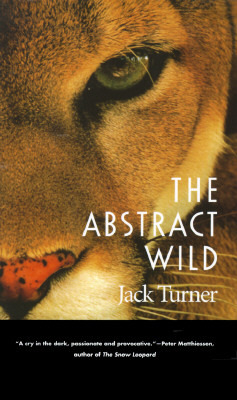
“Those early visits to the Maze, Glen Canyon, and the Escalante led me to the margins of the modern world, areas wild in the sense Thoreau meant when he said that in wildness is the preservation of the world: places where the land, the flora and fauna, the people, their culture, their language and arts were still ordered by energies and interests fundamentally their own, not by the homogenization and normalization of modern life.”
“[Wildness is] the relation of free, self-willed, and self-determinate ‘things’ with the harmonious order of the cosmos.”
“Something vast and old is vanishing and our rage should mirror that loss.”
In a collection of eight essays, Turner examines the questions: “how wild is wilderness and how wild are our experiences in it?” He argues—angrily, unapologetically—that the threats to wilderness have their root in six harmful abstract values and mindsets that shape our modern character and culture: 1) “our diminished personal experience of nature,” 2) “our preference for artifice,” 3) “our…dependence on experts to control and manipulate a natural world we no longer know,” 4) “our addiction to economics, recreation, and amusement at the expense of other values,” 5) a Western homogeneity and monoculture of biology, culture, language, thought, and social structures, and 6) an ignorance of or refusal to recognize the catastrophic loss of our “several-million-year-old intimacy with the natural world.” He calls for a change in character and in culture so we can reunited with the “life-force,” reborn as champions who confront the abstractions that keep the wild abstract from us.